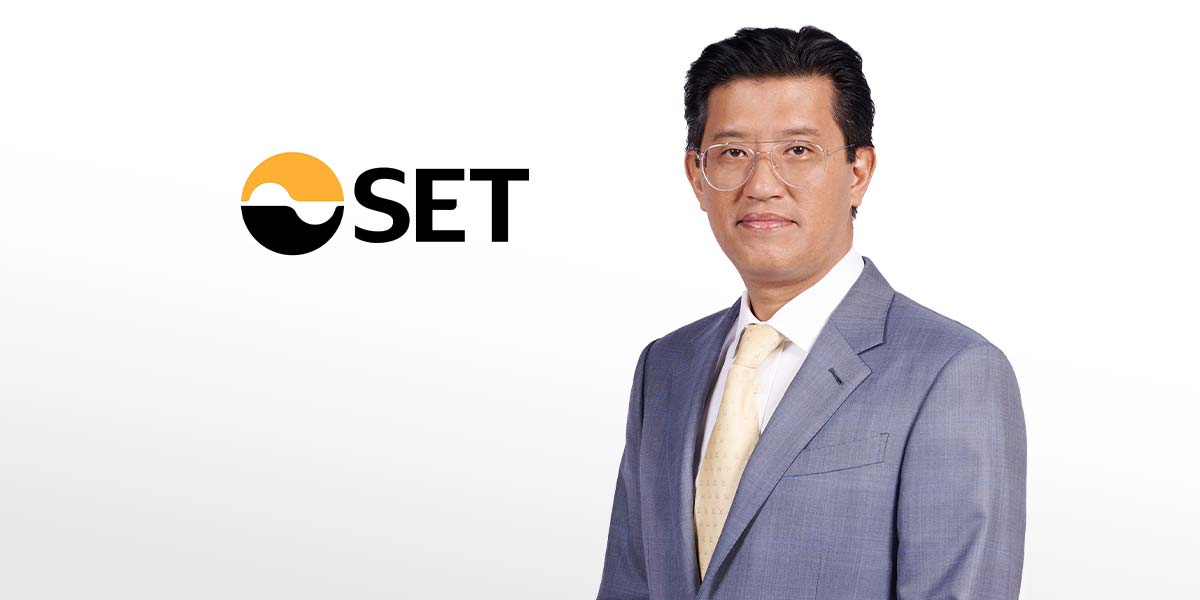Asadej Kongsiri, President of the Stock Exchange of Thailand (SET), stated that the phenomenon of many IPOs trading below their offering price on the first day this year should prompt investors to focus more on the fundamentals of each stock. He emphasized that looking only at price or P/E ratio may be inappropriate under the current circumstances.
Regarding IPO trading oversight, the SET already conducts monitoring, especially on the first trading day, ensuring thorough and continuous inspection. He insisted that the SET has performed detailed checks in the past. On a deeper level, investors should consider various aspects of the business, including past performance and its long-term potential, rather than focusing solely on the first day’s price, as business fundamentals are more important.
On the issue of this year’s relatively low IPO count, he attributed it to underlying economic factors, noting that Thailand’s economic growth is quite volatile and creates uncertainty in business investment decisions. However, two more companies are expected to list in November.
On IPO and capital increase pricing mechanisms, Asadej said that SET and the Securities and Exchange Commission (SEC) have little to no involvement in price setting, as the process employs global-standard mechanisms. Investors must therefore determine whether an IPO price is appropriate. He believes that the presence of many IPOs priced below the subscription price will affect how IPO pricing is considered in the future.
He further explained that future SET regulations will make it more difficult for companies to list, possibly reducing IPOs initially. The key, he said, is to strike a proper balance in setting or implementing appropriate rules. For the SET, providing complete information is paramount. The level of disclosure required for IPOs is considered appropriate and sufficient for investment decisions. For matters involving other bodies, such as auditing, financial statements, and board governance, other agencies are already conducting strict enforcement.
What every agency is trying to do is to move faster, because the mechanisms for regulation and inspection are already in place. The goal is to reduce wrongdoing and deter anyone from attempting anything detrimental to the stock market, Asadej said.
He also added that, in the last two months of the year, tax-saving funds continue to attract investors’ attention, especially ThaiESG Funds that reflect the trend towards sustainable (ESG) investing in line with global movements. He noted that, while investment sentiment remains influenced by external factors such as the U.S.-China tension and Federal Reserve interest rate policy, prospects in the domestic market have started to stabilize and look more promising.
For ThaiESG funds, their allocation into the capital market, whether equities or bonds, depends on overall sentiment. Over the past 2–3 months, the Thai stock market has stabilized and improved, as several sources of volatility have become clearer. Overall sentiment is good, although certain external factors remain unresolved, Asadej said.
The SET is also in talks with the Board of Investment (BOI) to attract foreign companies and new industries to use Thailand’s capital market as a fundraising channel. The idea is to amend listing rules suitable for BOI-promoted firms, which may be loss-making in the early stages but have long-term growth potential.
Regarding the Jump+ Project—a policy to encourage domestic company investment expansion and business value creation—Asadej noted its importance to the Thai bourse. Currently, more than 84 companies have joined, with plans to communicate project information to investors early next year.
Soraphol Tulayasathien, Head of Corporate Strategy & Strategic Initiatives Division at SET, noted that the Thai stock market continued to recover in October 2025, closing at 1,309.50 points, up 2.8% from the previous month—marking the second consecutive monthly increase. Sectors outperforming the market average included technology and finance, boosted by better-than-expected bank profits, government stimulus for the economy and tourism, and export and tourist figures exceeding estimates.
In terms of overall trading value, the average daily turnover for SET and market for alternative investment (mai) was THB 39.473 billion, down 27.9% from the same period last year. Over the year’s first 10 months, average daily turnover was THB 42.659 billion.
Foreign investors net sell was THB 4.496 billion in October, bringing the year-to-date net sell figure to THB 100.739 billion. Nevertheless, foreigners remain the largest trading group, accounting for 51.81% of total turnover, followed by local retail investors (31.80%), local institutions (9.77%), and brokerages (6.62%).
On valuation, the market’s forward P/E at the end of October was 12.2 times, below the Asian average of 14.6 times, while the historical P/E stood at 16.7 times, also under the regional average of 17 times. This suggests Thai equities remain attractive in terms of valuation. The dividend yield at the end of October was 3.76%, above Asia’s average of 2.96%.




